Home>diy>Building & Construction>How To Register A Construction Company


Building & Construction
How To Register A Construction Company
Modified: February 25, 2024
Learn the step-by-step process of registering a construction company. Get expert guidance on setting up your building construction business legally and efficiently.
(Many of the links in this article redirect to a specific reviewed product. Your purchase of these products through affiliate links helps to generate commission for Storables.com, at no extra cost. Learn more)
Introduction
Starting your own construction company can be an exciting and rewarding venture. It allows you to bring your building construction knowledge and expertise to the forefront and build a successful business. However, before you can start taking on projects and fulfilling your clients’ dreams, there are several important steps you need to take to register your construction company.
In this article, we will guide you through the process of registering your construction company, from conducting research and planning to obtaining the necessary licenses and permits. By following these steps, you can ensure that your construction company is legally established and ready to take on the challenges of the industry.
So, let’s dive into the process of registering a construction company and get you on your way to building a successful business.
Key Takeaways:
- Establishing a construction company requires thorough planning, legal compliance, and strategic networking. Prioritize safety, build a strong brand, and bid on projects strategically to ensure long-term success.
- From registering the business name to securing insurance and bidding on projects, each step is crucial for building a reputable construction company. Embrace innovation, prioritize safety, and cultivate strong industry relationships for sustained growth.
Read more: How To Name A Construction Company
Step 1: Research and Planning
Before diving into the process of registering your construction company, it is crucial to conduct thorough research and comprehensive planning. This step will lay the foundation for your business and help you make informed decisions along the way.
Start by analyzing the construction industry in your target location. Understand the market demand, competition, and potential clients. Identify any gaps or niches that your construction company can fill to stand out from the competition.
Additionally, research the legal and regulatory requirements for starting a construction company in your area. Familiarize yourself with the licensing, permits, and certifications needed to operate legally. This will ensure that you meet all the necessary requirements and avoid any legal issues down the line.
Furthermore, during the planning phase, define your business goals and objectives. Determine the scope and size of your construction company, the types of construction projects you will specialize in, and the target market you will cater to. Having a clear vision for your business will help you stay focused and make strategic decisions in the future.
Lastly, develop a comprehensive business plan that outlines your company’s structure, services, target market, marketing strategies, and financial projections. The business plan will serve as a roadmap for your construction company, guiding you through the various stages of growth and helping you secure financing if needed.
By investing time and effort in research and planning, you are setting a solid foundation for your construction company, increasing your chances of long-term success.
Step 2: Choose a Business Name
Choosing the right business name for your construction company plays a significant role in establishing your brand identity and attracting potential clients. Your business name should be memorable, descriptive, and reflective of the services you offer.
Start by brainstorming ideas and creating a list of potential business names. Consider using keywords related to the construction industry, such as “build,” “construct,” or “create,” to make your business name more relevant and searchable.
Next, research the availability of each name on your list to ensure that it is not already in use by another construction company. Check with your local business registration office or conduct a search online. You should also check the availability of the domain name associated with your chosen business name, as you will likely want to establish an online presence for your company.
When choosing a business name, it is important to consider its length, pronunciation, and spelling. Opt for a name that is easy to remember and pronounce, as this will make it easier for clients to refer your company to others. Avoid using acronyms or complex words that may confuse potential clients.
Additionally, think about your target market and the image you want to portray. Your business name should align with your company’s values and positioning. If you’re targeting high-end clients, for example, your business name should reflect sophistication and professionalism.
Once you have narrowed down your options, seek feedback from friends, family, and trusted colleagues. They can provide valuable insights and help you choose the most suitable business name for your construction company.
Remember that once you register your business, your chosen name will be legally protected. Therefore, it is important to carefully select a name that you are confident will represent your company effectively and withstand the test of time.
Step 3: Register the Business Name
Now that you have chosen the perfect name for your construction company, it’s time to officially register it. Registering your business name provides legal protection and ensures that no one else can operate under the same name.
The process of registering your business name may vary depending on your location. In most cases, you will need to visit your local government office or business registration agency to complete the necessary paperwork.
Start by checking the requirements for registering a business name in your area. You may need to fill out an application form and provide supporting documents such as identification, proof of address, and any necessary licenses or permits.
During the registration process, you will also need to specify the legal structure of your construction company. Common legal structures for construction businesses include sole proprietorship, partnership, limited liability company (LLC), or corporation. Each structure has its own implications in terms of liability, taxes, and ownership, so it is important to choose the structure that best suits your business needs.
Once you have completed the registration process and paid any applicable fees, you will receive a certificate or registration document confirming the successful registration of your business name. This document is important for conducting business transactions and proving the legitimacy of your construction company.
It is worth noting that registering your business name does not automatically grant you trademark protection. If you want exclusive rights to your business name and logo, you may need to apply for a trademark separately.
By registering your business name, you are taking a crucial step towards establishing your construction company as a legitimate and professional entity. This registration will provide you with the necessary legal protection and instill trust in your clients and partners.
Step 4: Determine the Business Structure
Choosing the right business structure for your construction company is an important decision that will have legal and financial implications. The structure you choose will determine how your company is taxed, how profits and losses are distributed, and the level of personal liability you will have.
There are several common business structures to consider:
- Sole Proprietorship: This is the simplest and most common structure for small businesses. As a sole proprietor, you have complete control over your construction company, but you are personally responsible for all debts and liabilities.
- Partnership: If you are starting the construction company with someone else, you can form a partnership. There are two types of partnerships: general partnerships, where all partners share equal responsibility and liability, and limited partnerships, where there are both general and limited partners.
- Limited Liability Company (LLC): An LLC provides limited liability protection to its owners, known as members. This structure combines the flexibility of a partnership with the limited liability of a corporation. It is a popular choice for construction companies.
- Corporation: A corporation is a separate legal entity from its owners, known as shareholders. It offers the most protection from personal liability but involves more complex legal and financial requirements. There are different types of corporations, such as C corporations and S corporations.
When choosing a business structure, consider factors such as your desired level of personal liability, tax implications, management flexibility, and long-term growth plans for your construction company.
It is recommended to consult with a legal or financial professional who can provide guidance based on your specific circumstances and goals. They can help you understand the advantages and disadvantages of each business structure and assist you in making an informed decision.
Once you have determined the best business structure for your construction company, you may need to file additional paperwork, such as articles of incorporation or an operating agreement, depending on the structure chosen.
By carefully selecting the appropriate business structure, you are ensuring that your construction company operates legally and efficiently, setting a strong foundation for future growth and success.
Read more: How To Sell A Construction Company
Step 5: Obtain the Necessary Licenses and Permits
To legally operate your construction company, you must obtain the necessary licenses and permits required by local, state, and federal authorities. These licenses and permits ensure that your business meets safety standards and regulatory requirements.
The specific licenses and permits you need will depend on the type of construction work you plan to undertake and the jurisdiction in which you operate. Here are some common licenses and permits that you may need to consider:
- Contractor’s License: Many jurisdictions require contractors to hold a valid contractor’s license, which demonstrates the contractor’s competence and knowledge in the field. The requirements for obtaining a contractor’s license vary by location, so make sure to research your local licensing board’s requirements.
- Building Permits: Before starting any construction project, you will likely need to obtain building permits. These permits are typically issued by the local building department and ensure that your construction plans comply with building codes and regulations.
- Trade-Specific Licenses: Depending on the type of work you perform, you may need trade-specific licenses. For example, if you specialize in electrical work, plumbing, or HVAC installation, you may require additional licenses or certifications.
- Environmental Permits: Construction projects that impact the environment may require environmental permits to ensure compliance with environmental regulations. These permits cover areas such as waste disposal, erosion control, and protection of natural habitats.
- Health and Safety Certifications: Construction sites can be hazardous, so it is important to prioritize the safety of your workers and the public. Depending on your location, you may need to obtain health and safety certifications, such as OSHA (Occupational Safety and Health Administration) compliance or first aid training.
Research the specific licensing and permitting requirements for construction companies in your area. Contact the relevant regulatory agencies or licensing boards to determine the necessary steps and documentation needed to obtain the required licenses and permits.
Keep in mind that some licenses and permits may need to be renewed periodically, so it is important to stay updated and in compliance with all regulatory obligations.
By obtaining the necessary licenses and permits, you are not only ensuring the legality of your construction company but also demonstrating your commitment to operating in a responsible and compliant manner. This will give your clients confidence in your abilities and help to build a strong reputation in the industry.
Step 6: Secure Insurance Coverage
Securing proper insurance coverage is an essential step in protecting your construction company from potential risks and liabilities. Construction projects involve inherent risks, including property damage, accidents, injuries, and unforeseen circumstances. Having the right insurance policies in place will provide financial protection and give you peace of mind.
There are several types of insurance policies that construction companies commonly need:
- General Liability Insurance: This insurance policy protects your construction company from claims related to bodily injury, property damage, or personal injury caused by your business’s operations. It covers legal costs and potential settlements or judgments.
- Worker’s Compensation Insurance: Worker’s compensation insurance is often required by law and covers medical expenses and lost wages for employees who are injured or become ill on the job. It provides financial support for injured workers and protects your business from costly lawsuits.
- Commercial Auto Insurance: If your construction company owns or operates vehicles, commercial auto insurance is necessary to protect against accidents, damages, and injuries involving those vehicles.
- Professional Liability Insurance: Also known as errors and omissions insurance, this policy provides coverage for claims related to professional negligence, design errors, or faulty workmanship. It is particularly important for construction companies involved in design-build or consulting services.
- Builder’s Risk Insurance: Builder’s risk insurance covers damage or loss to a construction project during the course of construction. It protects against events such as fire, theft, vandalism, and severe weather.
Contact a reputable insurance provider with experience in the construction industry to discuss your specific insurance needs. They will help you determine the appropriate coverage for your construction company and provide you with quotes for the different policies.
With insurance coverage in place, you are protecting your construction company’s assets, employees, and clients. In the event of an accident or unexpected event, insurance will help mitigate financial losses and ensure the continuity of your business.
Step 7: Register with the Tax Authorities
Registering with the tax authorities is a crucial step in ensuring that your construction company complies with tax laws and regulations. By registering, you will obtain the necessary identification numbers and fulfill your tax obligations.
The specific tax requirements and registration process may vary depending on your location and the type of business structure you have chosen. Here are some key tax-related registrations you may need to consider:
- Obtain an Employer Identification Number (EIN): An EIN is a unique identification number issued by the Internal Revenue Service (IRS) in the United States. It is necessary if you have employees, operate as a partnership or corporation, or plan to file certain business tax returns.
- Register for Sales Tax: If your construction company sells tangible goods or provides certain taxable services, you may need to register for sales tax or a similar tax on goods and services. This registration allows you to collect and remit sales tax to the appropriate tax authority.
- Register for Payroll Taxes: If you have employees, you will need to register for payroll taxes. This includes withholding and remitting income tax, Social Security, and Medicare taxes from your employees’ wages.
- File Estimated Tax Payments: As a self-employed construction company owner, you may be required to make estimated tax payments on your business earnings throughout the year. These payments serve as advance payments towards your annual tax liability.
- Consult a Tax Professional: Tax laws and regulations can be complex, so it is recommended to seek guidance from a tax professional who can help you understand your specific tax obligations and assist you with the registration process.
Be proactive in understanding and complying with tax laws to avoid penalties and fines. Keep accurate records of your income and expenses, and maintain a system for tracking and reporting your tax liabilities.
Remember to stay up to date with any changes in tax regulations and to file your tax returns and payments according to the prescribed deadlines.
By registering with the tax authorities and meeting your tax obligations, you are ensuring the financial health and legal compliance of your construction company.
Step 8: Set Up Financial Accounts
Setting up financial accounts for your construction company is essential for managing your business finances effectively and keeping track of your income, expenses, and cash flow. By establishing separate accounts, you can maintain accurate financial records, simplify tax preparation, and make informed financial decisions.
Here are some key financial accounts you should consider setting up:
- Business Bank Account: Open a dedicated business bank account to separate your personal and business finances. This will provide a clear distinction between your personal expenses and your construction company’s income and expenses. It also makes it easier to track and manage your finances.
- Business Credit Card: A business credit card can help you manage your business expenses and provide a clear record of your company’s spending. It can also make it easier to track and categorize your business-related purchases for tax purposes.
- Accounting Software: Consider using accounting software to streamline your financial processes. This software can help you track expenses, generate invoices, manage payroll, and generate financial reports. It simplifies bookkeeping tasks and provides you with valuable insights into your company’s financial health.
- Separate Savings Accounts: Depending on your business needs, you may want to set up separate savings accounts for specific purposes. For example, you could have an account dedicated to taxes, one for equipment purchases or emergencies, and another for long-term savings goals.
When setting up your financial accounts, consult with a financial advisor or accountant to ensure that you choose the most suitable options for your construction company. They can provide guidance on the best banking institutions, credit cards, and accounting software to meet your specific needs.
Once your financial accounts are established, it is important to maintain accurate and up-to-date records. Keep track of all income and expenses, reconcile your accounts regularly, and review your financial reports to gain insights into your company’s financial performance.
By setting up dedicated financial accounts, you are organizing your construction company’s finances, improving your financial management capabilities, and ensuring accurate reporting and compliance with tax regulations.
When registering a construction company, make sure to research and comply with all local, state, and federal regulations regarding business licenses, permits, and insurance requirements.
Read more: How To Market A Construction Company
Step 9: Develop a Business Plan
A well-crafted business plan is an essential tool for success in the construction industry. It serves as a roadmap for your construction company, outlining your goals, strategies, and financial projections. A comprehensive business plan not only helps you stay focused, but it also provides valuable insights into your company’s viability and growth potential.
When developing your business plan, consider including the following key elements:
- Executive Summary: Summarize the key points of your business plan, including your company’s mission, vision, and objectives.
- Company Description: Provide an overview of your construction company, including its history, legal structure, and the types of construction services you offer.
- Market Analysis: Conduct research on your target market, identify your ideal clients and competitors, and assess market trends and opportunities.
- Services and Pricing: Describe the construction services you will provide and outline your pricing strategies. Highlight any unique selling points that differentiate your company from competitors.
- Marketing and Sales Strategies: Define your marketing and advertising strategies to attract clients and generate leads. Outline your sales approach and how you plan to promote your construction services.
- Operations and Management: Detail the organizational structure of your construction company, including key personnel, their roles, and responsibilities. Explain the processes and systems you will implement to efficiently manage projects.
- Financial Projections: Forecast your company’s financial performance, including revenue, expenses, and cash flow projections. This section should also include a break-even analysis and details of any financing requirements.
- Risk Assessment: Identify potential risks and challenges that may impact your construction company and outline strategies to mitigate and manage these risks.
Remember to regularly review and update your business plan as your construction company evolves. It should serve as a dynamic document that adapts to changing market conditions and business goals.
Your business plan is a valuable tool for attracting potential investors, securing financing, and guiding your business decisions. It provides a clear roadmap for your construction company’s future success.
Step 10: Establish a Marketing and Branding Strategy
Building a strong brand presence and effectively marketing your construction company is key to attracting clients and standing out in a competitive industry. A well-defined marketing and branding strategy will help you reach your target audience, build trust, and drive business growth. Here’s how to establish a solid marketing and branding strategy:
Identify your target market: Determine the specific market segment(s) you want to target. Consider factors such as demographics, geographic location, and the types of construction projects they typically require. This will help you tailor your marketing efforts to reach the right audience.
Create a compelling brand identity: Develop a brand identity that reflects your construction company’s values, mission, and unique selling proposition. This includes designing a memorable logo, selecting appropriate colors and fonts, and crafting a compelling brand message.
Build a professional website: A well-designed, user-friendly website is essential for your online presence. Showcase your services, project portfolio, testimonials, and contact information. Ensure that your website is optimized for search engines to improve its visibility in search results.
Utilize digital marketing techniques: Leverage digital marketing channels to reach a wider audience. This includes search engine optimization (SEO), pay-per-click advertising, social media marketing, and email marketing. Tailor your messaging and content to resonate with your target market.
Showcase your expertise: Demonstrate your construction knowledge and expertise by creating and sharing high-quality, informative content. This can be in the form of blog articles, videos, or case studies. Establish yourself as a thought leader in the industry.
Network and collaborate: Attend industry events, join professional organizations, and establish connections with other professionals in the construction industry. This will help you build a strong network and open doors for potential partnerships and referrals.
Monitor and measure results: Regularly track and analyze the effectiveness of your marketing efforts. Use tools like website analytics, social media insights, and customer feedback to gauge the success of your marketing campaigns. Adjust your strategies as needed to optimize results.
To effectively execute your marketing and branding strategy, you may consider hiring a marketing professional or agency with experience in the construction industry. They can help you develop a cohesive brand identity, create engaging content, and implement targeted marketing campaigns.
By establishing a strong marketing and branding strategy, you can increase brand awareness, attract more clients, and position your construction company as a trusted industry leader.
Step 11: Hire Employees or Contractors
As your construction company grows, you may need to expand your workforce to meet the demands of projects and provide exceptional service to your clients. Whether you choose to hire employees or work with independent contractors, hiring the right individuals is crucial for the success and reputation of your construction company. Here’s how to navigate the hiring process:
Determine your staffing needs: Assess your current and projected workload to determine the number and types of positions you need to fill. Consider the skills, qualifications, and experience required for each role.
Develop detailed job descriptions: Clearly define the responsibilities, qualifications, and expectations for each position. This will help you attract candidates who are the best fit for your construction company.
Source candidates: Advertise job openings through various channels, such as online job boards, industry-specific websites, social media, and referrals. Consider partnering with trade schools or local construction associations to find qualified candidates.
Screen and interview candidates: Review resumes and applications to shortlist top candidates. Conduct interviews to assess their skills, experience, and cultural fit. Ask behavioral and situational questions to gauge their problem-solving abilities and professionalism.
Check references and background: Verify the references provided by candidates to gain insights into their work history and performance. If necessary, conduct background checks to ensure the candidates have no criminal record or financial issues that could impact their suitability for the role.
Consider hiring contractors: Depending on the nature of your projects and your immediate staffing needs, you may choose to work with independent contractors instead of hiring employees. Contractors offer flexibility and specialized skills, but ensure they have the required licenses, permits, and insurance coverage.
Provide proper training and onboarding: Once you have selected the right candidates, invest in their development and provide comprehensive training. Familiarize them with your company’s safety protocols, procedures, and quality standards to ensure consistency and professionalism on job sites.
Maintain positive employee and contractor relationships: Foster a supportive and inclusive work environment that values communication and teamwork. Recognize and reward outstanding performance to motivate and retain top talent.
Comply with employment regulations: Ensure that you comply with all employment laws and regulations, including minimum wage requirements, overtime provisions, and workplace safety standards.
Remember, the success of your construction company relies on the skills and dedication of your employees or contractors. By taking the time to hire the right individuals, you are building a strong team that will contribute to the growth and reputation of your construction company.
Step 12: Obtain Required Equipment and Tools
Having the right equipment and tools is essential for the efficient and successful operation of your construction company. Acquiring the necessary equipment will allow you to meet project requirements, improve productivity, and deliver high-quality results. Here are the key steps to obtaining the required equipment and tools:
Identify your equipment needs: Assess the types of construction projects you will undertake and the specific equipment and tools required for those projects. Consider the scope of work, size of the projects, and any specialized equipment or machinery needed.
Research and compare options: Conduct thorough research on equipment manufacturers, suppliers, and rental companies. Compare prices, quality, features, and warranties to ensure you make informed decisions.
Consider new vs. used equipment: Determine whether it is more cost-effective to purchase new equipment or opt for used equipment. Consider factors such as upfront costs, maintenance requirements, and the expected lifespan of the equipment.
Explore financing options: Equipment purchases can be a significant investment. Consider financing options such as loans, leasing, or equipment rental with the option to buy. Evaluate the financial implications and choose the method that aligns with your budget and long-term business plans.
Establish maintenance and repair protocols: Develop a proactive maintenance plan to ensure that your equipment is well-maintained and functions optimally. Regular inspections, preventive maintenance, and timely repairs can help extend the lifespan of the equipment and minimize downtime.
Train your team: Provide comprehensive training to your employees or contractors on the proper operation, maintenance, and safety procedures for the equipment and tools they will be using. This will ensure that they can operate the equipment effectively and minimize the risk of accidents.
Consider equipment rental: Depending on the frequency and duration of specific projects, it may be more cost-effective to rent certain equipment or tools. Equipment rental companies provide a wide range of options, allowing you to access specialized equipment without the long-term commitment.
Ensure compliance with safety standards: Verify that the equipment and tools you acquire meet the necessary safety standards and regulations. This is crucial for creating a safe working environment and preventing accidents or injuries on construction sites.
Remember to regularly assess your equipment needs as your construction company evolves. Evaluate whether you need to upgrade or add new equipment to improve efficiency or expand your capabilities.
By obtaining the required equipment and tools, you are equipping your construction company to effectively handle projects, deliver quality results, and maintain a competitive edge in the industry.
Read more: How To Start A Construction Company In NYC
Step 13: Start Building Your Network
Building a strong professional network is crucial for the growth and success of your construction company. A robust network helps you establish relationships with potential clients, subcontractors, suppliers, and industry professionals, creating opportunities for collaboration and business expansion. Here are the key steps to start building your network:
Attend industry events: Participate in construction industry trade shows, conferences, and networking events. These events provide valuable opportunities to meet industry peers, showcase your expertise, and connect with potential clients and partners.
Join professional organizations: Become a member of industry-specific professional organizations or associations. These groups offer networking events, educational resources, and access to a community of professionals in the construction industry. Engage actively by volunteering for committees or leadership roles to expand your network further.
Utilize social media: Leverage social media platforms to connect with industry professionals and establish your online presence. LinkedIn is particularly useful for networking within the professional community. Share relevant content, engage in conversations, and build relationships with potential clients and partners.
Develop strategic partnerships: Identify complementary businesses in the construction industry with whom you can collaborate. Establish relationships with subcontractors, suppliers, architects, or engineers who can enhance your capabilities and refer your construction company to their clients.
Seek referrals: Encourage satisfied clients to provide referrals and testimonials. Word-of-mouth recommendations from clients can be one of the most effective ways to establish trust and attract new business opportunities.
Engage in community involvement: Participate in community service projects or local events. This will not only allow you to give back to the community but also create visibility for your construction company and connect with potential clients and partners in your local area.
Cultivate relationships: Building a network is about cultivating meaningful and long-lasting relationships. Take the time to follow up with contacts, schedule meetings or coffee chats, and maintain regular communication. Networking is not just about what you can gain, but also how you can contribute and support others in the industry.
Stay engaged and active: Keep up-to-date with industry trends and news. Share relevant information, insights, or industry-related articles with your network. Participate in online forums or discussion groups to contribute to the community and build your reputation as an industry expert.
Remember, networking is an ongoing process. Continuously dedicate time and effort to nurture and expand your network. The relationships you build can lead to valuable opportunities, collaborations, referrals, and a strong reputation for your construction company.
Step 14: Get Familiar with Safety Regulations
Ensuring the safety of your construction workers and adhering to safety regulations is crucial for the success and reputation of your construction company. Familiarizing yourself with safety regulations helps protect your employees, mitigate risks, and comply with legal requirements. Here are the key steps to get familiar with safety regulations:
Research safety standards and regulations: Familiarize yourself with the occupational health and safety regulations specific to your location. This includes understanding the requirements set forth by government agencies and industry organizations.
Stay updated on industry best practices: Keep abreast of industry trends and best practices in construction safety. Regularly review and implement safety guidelines and protocols recommended by reputable organizations such as OSHA (Occupational Safety and Health Administration).
Create a safety program: Develop a comprehensive safety program for your construction company. The program should outline procedures, responsibilities, and protocols for maintaining a safe work environment. It should include measures for hazard identification, risk assessment, training, equipment inspection, and emergency response.
Provide safety training: Conduct regular safety training sessions for your employees and subcontractors. Ensure that all workers are knowledgeable about safety procedures, properly trained on equipment operation, and aware of potential hazards specific to each construction project.
Implement safety inspections: Regularly inspect construction sites, equipment, and tools to identify potential hazards or safety issues. Encourage workers to report any safety concerns, and promptly address and rectify identified hazards.
Enforce safety policies: Consistently enforce safety policies and regulations within your construction company. Make it clear that safety is a priority, and hold all employees and subcontractors accountable for adhering to safety protocols.
Provide personal protective equipment (PPE): Supply appropriate personal protective equipment such as hard hats, gloves, safety glasses, and high-visibility vests to all workers. Ensure that they are educated on their proper usage and that they wear them consistently on job sites.
Keep accurate safety records: Maintain detailed records of safety training, incidents, near misses, and inspections. This documentation demonstrates your commitment to safety and serves as a reference for future improvements and compliance audits.
Stay informed about updates: Regularly review safety regulations and guidelines issued by relevant authorities. Stay informed about any changes or updates, and ensure that your construction company remains in compliance with the latest safety standards.
Seek expert advice when needed: If you are unsure about any safety regulations, seek advice from safety consultants or professionals with expertise in construction safety. They can provide guidance on risk assessments, safety audits, and compliance measures.
By prioritizing safety and actively complying with safety regulations, you are creating a culture of safety within your construction company. This not only protects your workers but also enhances your reputation as a responsible and reliable construction company.
Step 15: Begin Bidding on Construction Projects
As your construction company establishes its presence and capabilities, it’s time to start bidding on construction projects. Winning bids can lead to substantial business growth and profitability. Here are the key steps to effectively bid on construction projects:
Identify project opportunities: Research and identify construction projects that align with your company’s expertise, resources, and capacity. Stay informed about upcoming public and private projects through online platforms, industry publications, and networking.
Understand project requirements: Carefully review project documents, including plans, specifications, and scopes of work. Understand the project’s objectives, timelines, deliverables, and any unique requirements or challenges.
Estimate project costs: Prepare accurate and detailed cost estimates for the project, including labor, materials, equipment, subcontractors, permits, and overhead expenses. Utilize reliable estimating techniques and tools to ensure accuracy.
Develop a competitive bid: Craft a well-written and comprehensive bid proposal. Clearly outline your company’s qualifications, experience, and approach to the project. Highlight your unique selling points and competitive advantages that differentiate your construction company from others.
Submit the bid on time: Adhere to the submission deadline and follow the specified submission process. Ensure that all required documents and forms are complete and included in the bid package.
Provide references and testimonials: Include references and testimonials from previous clients to enhance your credibility. Positive feedback and successful project outcomes can significantly strengthen your bid.
Maintain good relationships with subcontractors and suppliers: Maintain a strong network of reliable subcontractors and suppliers who can provide competitive pricing and meet project requirements. Collaborating with trusted partners can enhance your bid and increase the chances of winning projects.
Follow up on submitted bids: After submitting a bid, follow up with the project owner or the designated contact person. Express your interest in the project and inquire about the status of the bidding process. This demonstrates your commitment and professionalism.
Learn from unsuccessful bids: If your bid is not successful, seek feedback from the project owner or decision-makers when possible. Understand the reasons for the decision and assess opportunities for improvement in future bids.
Continuously refine your bidding strategy: Evaluate the success of your bids, review feedback, and analyze project outcomes. Identify strengths and weaknesses in your bidding approach and adjust your strategies accordingly.
Remember, bidding on construction projects requires thorough preparation, attention to detail, and careful consideration of project requirements. By developing a strong bidding strategy and continually improving your processes, you can increase your chances of winning lucrative construction projects and growing your business.
Conclusion
Congratulations on reaching the conclusion of this comprehensive guide on how to register a construction company. Starting and running a construction business requires careful planning, diligent research, and strong execution. By following the steps outlined in this guide, you can set a solid foundation for your construction company’s success.
From conducting research and planning to obtaining licenses, securing insurance, and building a network, each step plays a crucial role in establishing and growing your construction business. Remember, it is not just about completing the necessary paperwork but also about developing a clear vision, providing quality services, and maintaining a strong reputation in the industry.
As you embark on this journey, keep in mind that the construction industry is highly competitive. Continuously strive to enhance your skills, stay updated with industry trends, and seek opportunities for professional development. Understanding and complying with safety regulations is vital for the well-being of your workers and the sustainability of your business.
Additionally, prioritize building strong relationships with clients, subcontractors, suppliers, and industry professionals. These connections can lead to valuable collaborations, referrals, and long-term partnerships.
Lastly, remember that running a construction company requires adaptability, resilience, and the ability to navigate challenges. Stay proactive, embrace innovation, and continuously refine your strategies to keep your business thriving in a dynamic industry.
With determination, hard work, and a customer-focused mindset, your construction company can achieve long-term success. So, go forth and build a foundation for your dreams, one project at a time.
Frequently Asked Questions about How To Register A Construction Company
Was this page helpful?
At Storables.com, we guarantee accurate and reliable information. Our content, validated by Expert Board Contributors, is crafted following stringent Editorial Policies. We're committed to providing you with well-researched, expert-backed insights for all your informational needs.

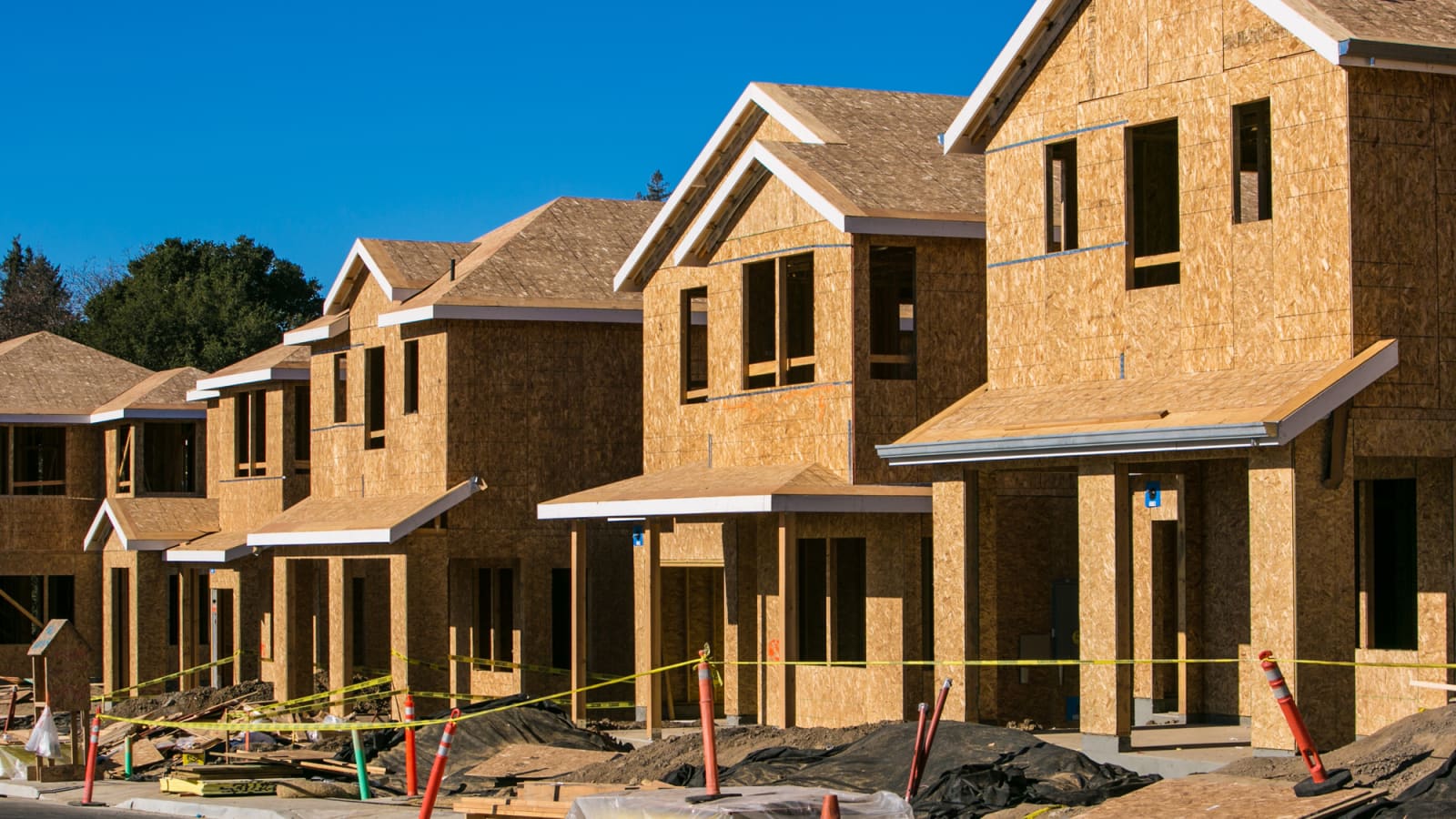

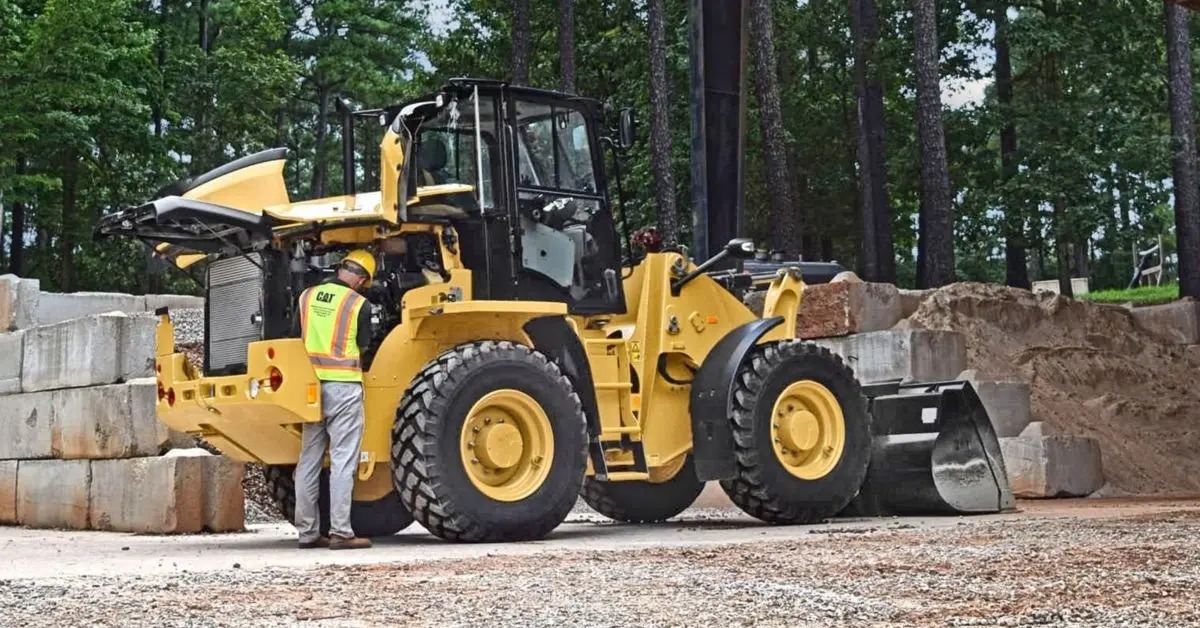
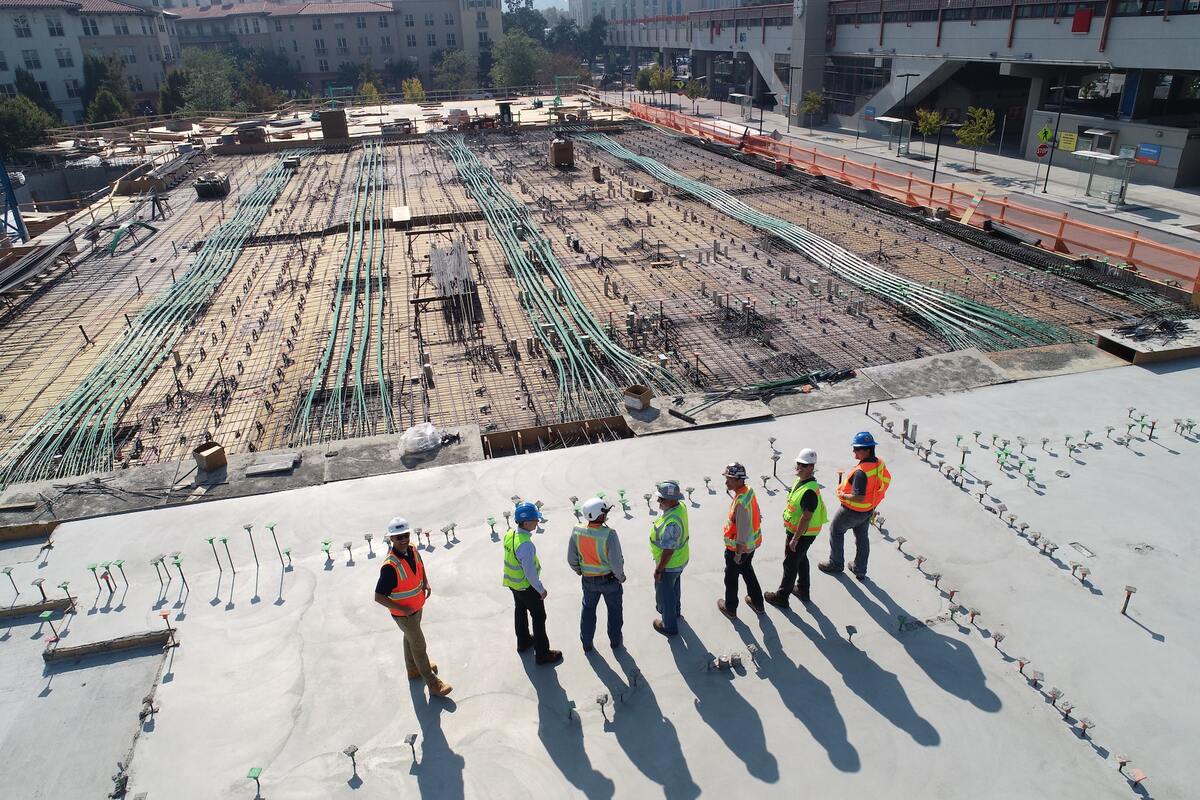

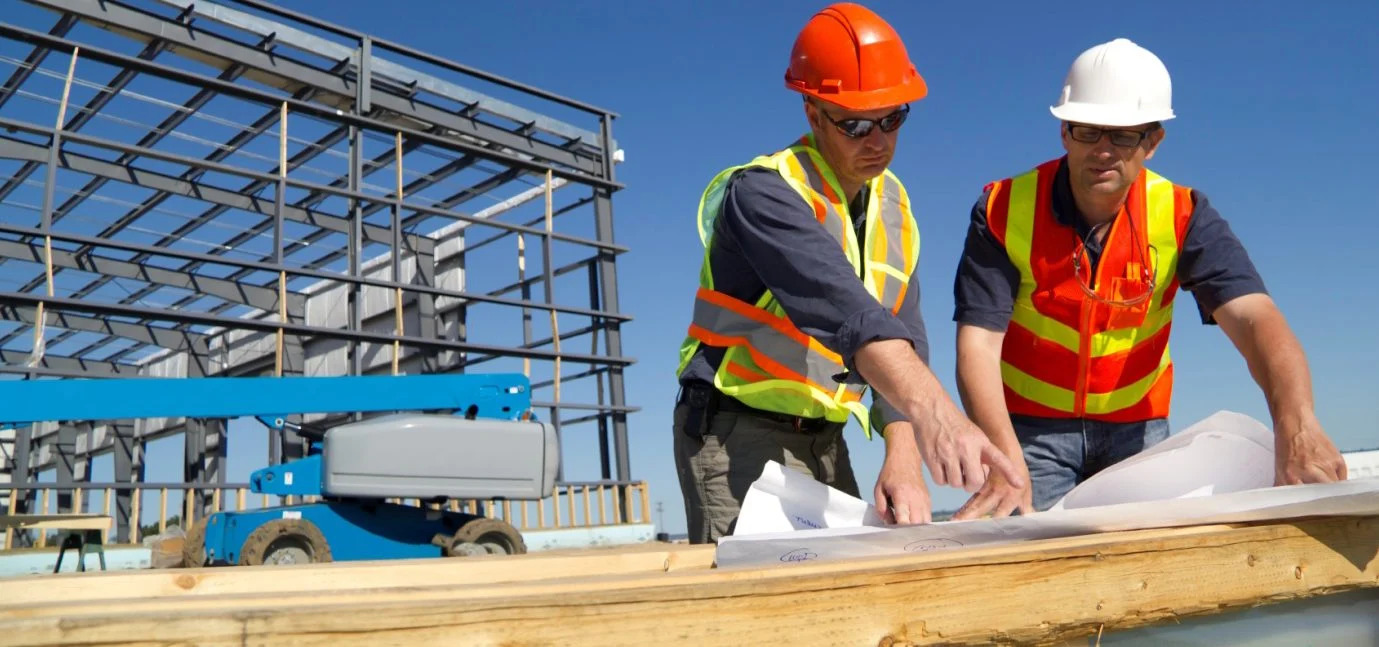



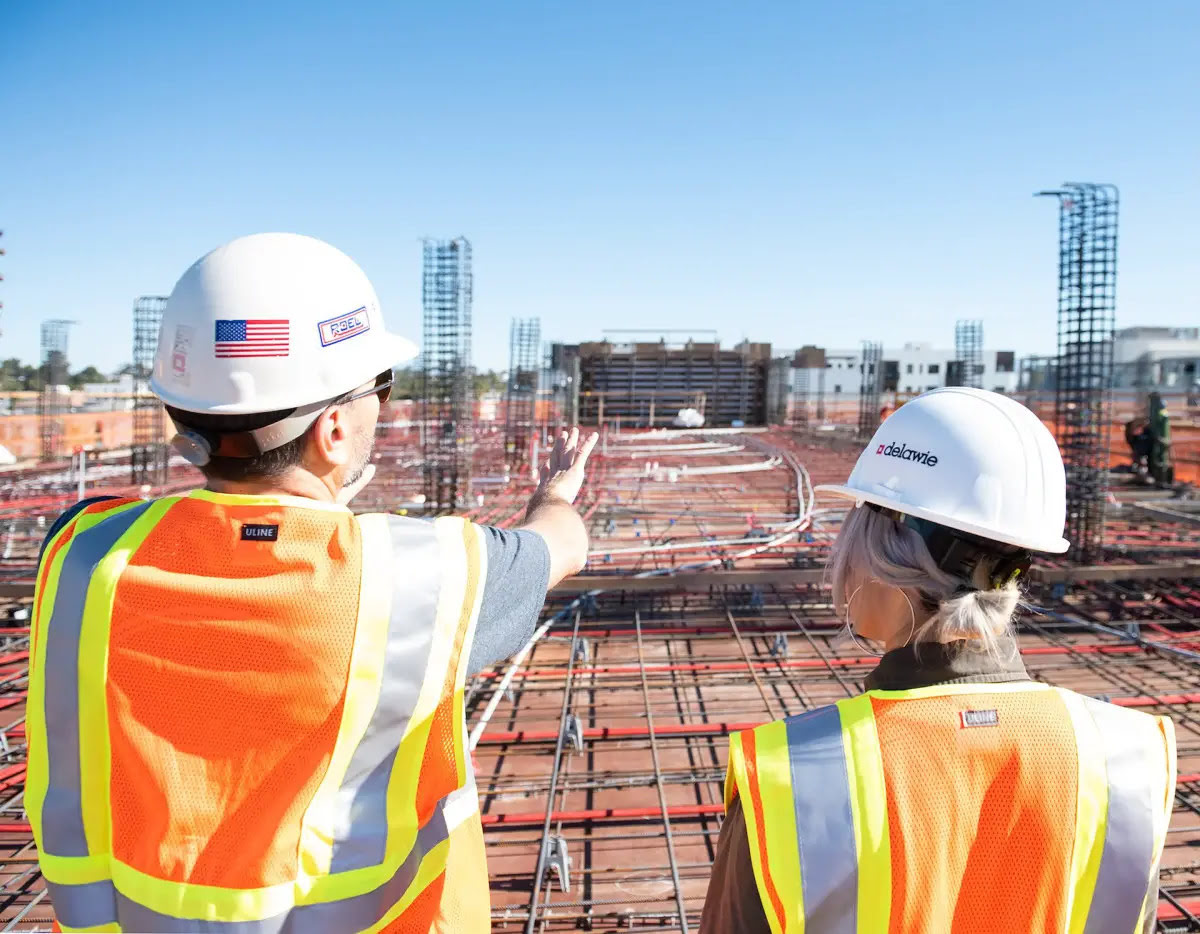


0 thoughts on “How To Register A Construction Company”